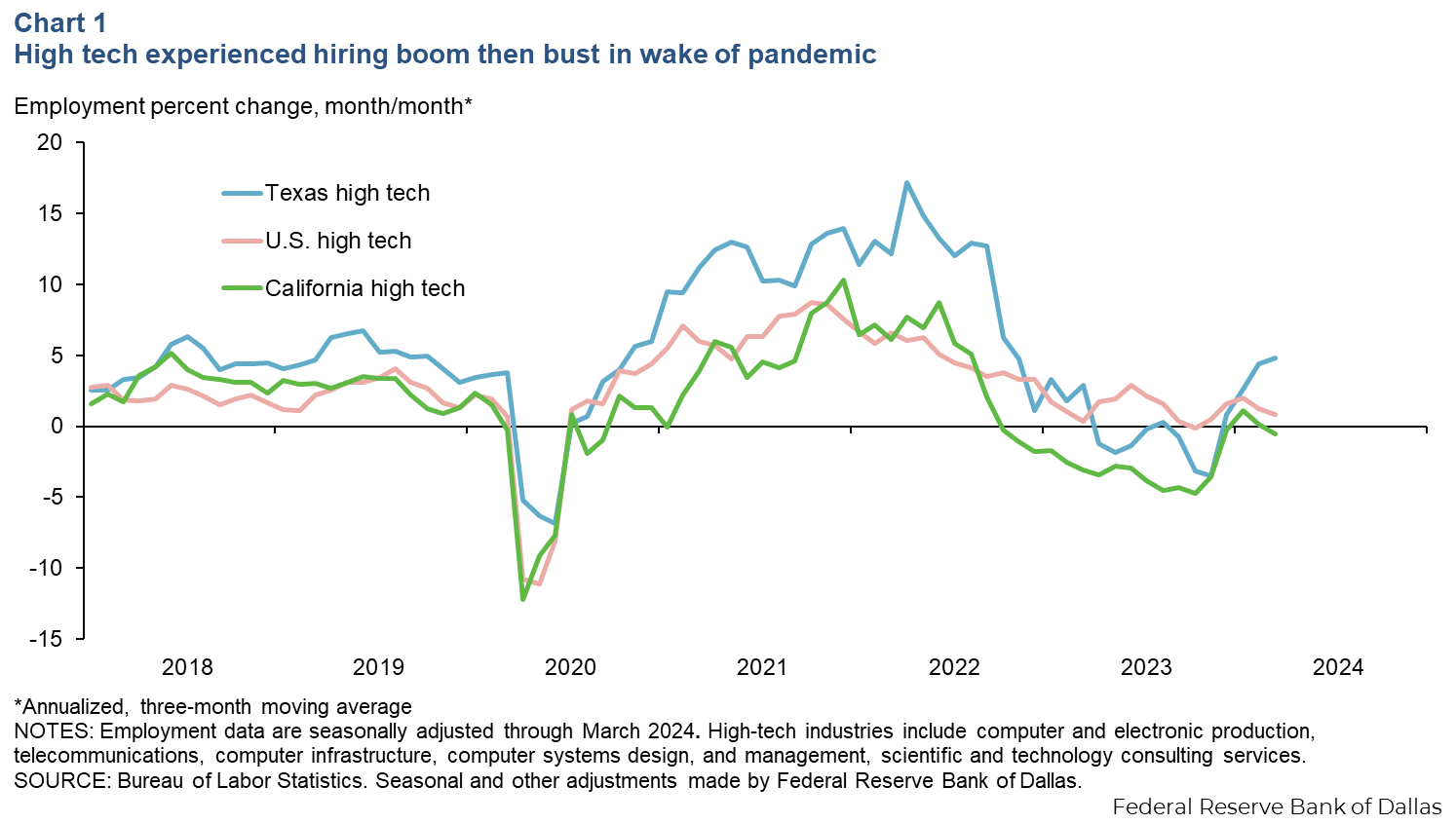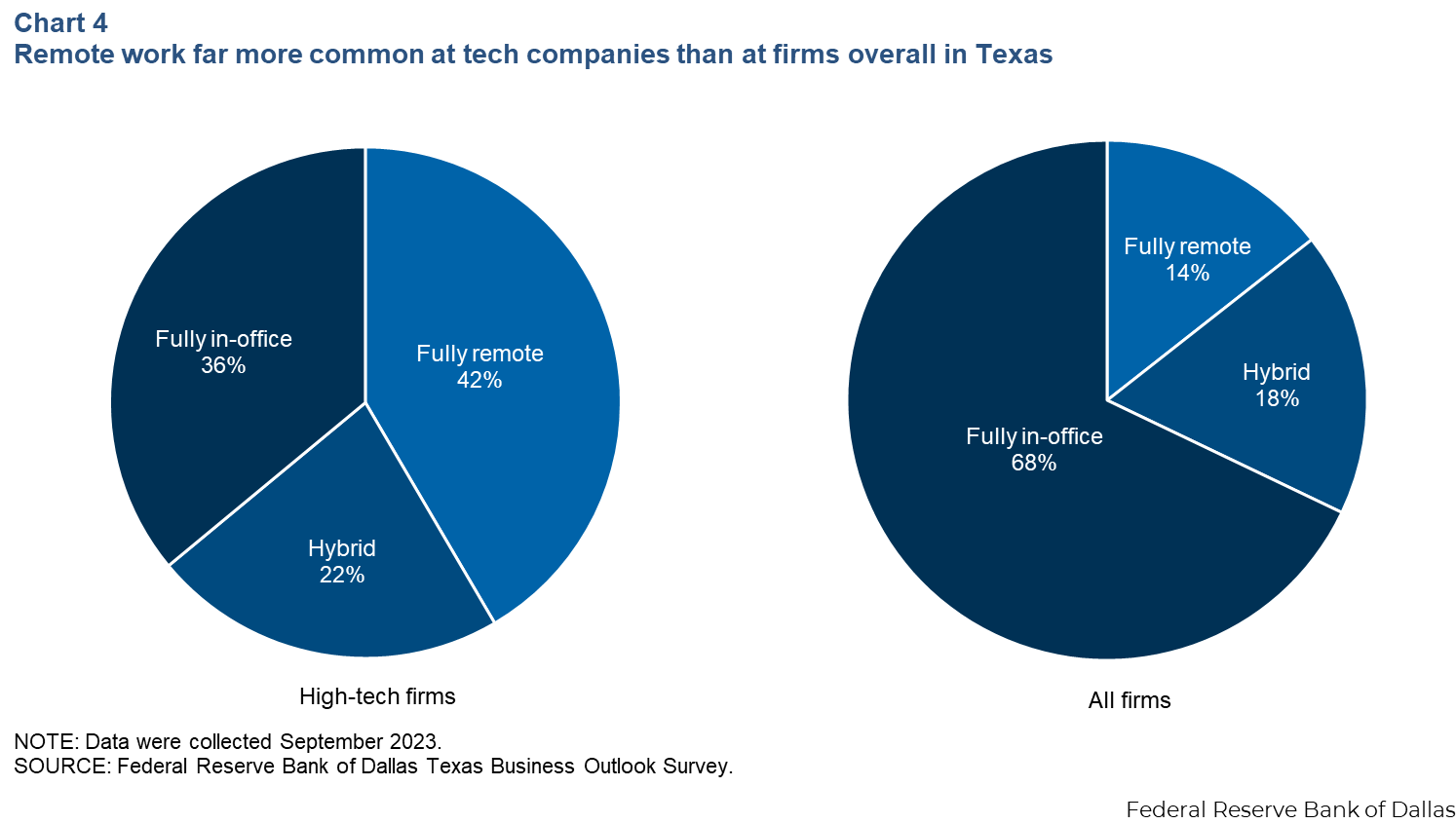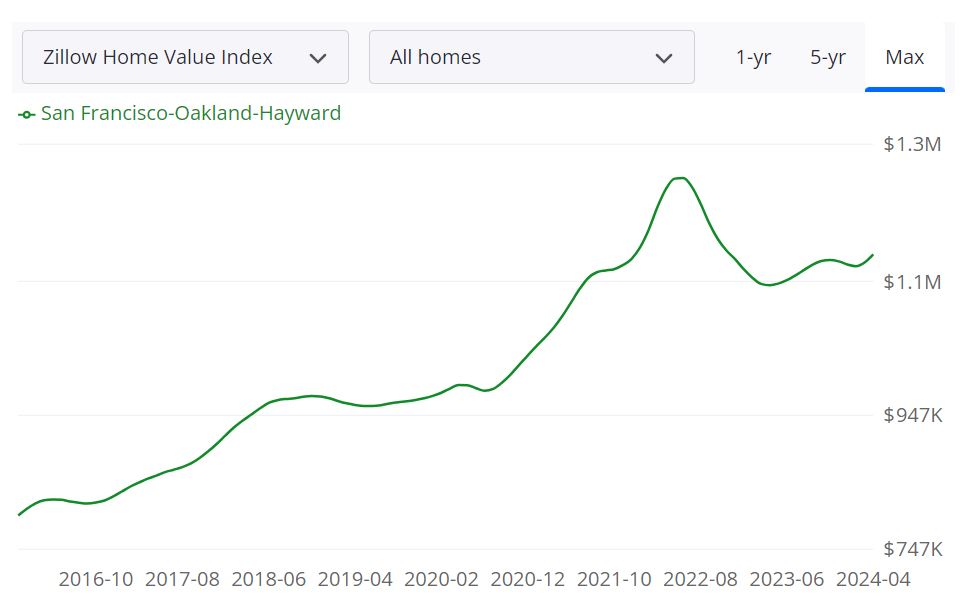Profit Maximization in Volatile Times: 10 Crucial Insights for Investors

Profit Maximization in Volatile Times: 10 Crucial Insights for Investors
Guiding Investors Through the Uncertainty
In periods of market volatility and uncertainty, investors face a unique set of challenges and opportunities. This article delves into the critical role of fear and greed in investment decisions, offering ten crucial insights to assist investors in navigating these turbulent times.
By understanding and managing these emotions, investors can maximize their profits and make informed decisions that align with their long-term goals.
Whether you are a seasoned investor or just starting out, these insights will serve as a valuable guide to navigate the complex landscape of investing during volatile times.
Investment Opportunities: Harnessing Fear
While fear is often seen as a negative emotion, it can also be a powerful catalyst for growth and opportunity. By embracing fear and understanding its underlying causes, investors can identify undervalued assets and make strategic investment decisions.

Knowledge: A Powerful Tool in Investing
Knowledge is a key asset in navigating volatile markets. By staying informed about market trends, economic indicators, and industry developments, investors can make well-informed decisions and seize opportunities that others may overlook.
Access to reliable and up-to-date information is crucial in today’s fast-paced financial landscape. Utilize reputable sources, consult experts, and leverage technology to gain a competitive edge in your investment journey.

Portfolio Diversification: A Strategy for Risk Mitigation
Diversification is a fundamental principle of successful investing, especially during volatile times. By spreading your investments across different asset classes, sectors, and geographical regions, you can mitigate risks and protect your portfolio from excessive volatility.
Consider allocating your investments across stocks, bonds, real estate, and other alternative assets to create a well-balanced portfolio that can weather market fluctuations.

A Long-Term Perspective: A Key in Volatile Markets
In volatile markets, it’s crucial to maintain a long-term perspective. Short-term price fluctuations can be unnerving, but focusing on the underlying value and fundamentals of your investments can help you make rational decisions based on long-term growth potential.
Avoid succumbing to short-term market noise and instead, stay committed to your investment strategy and objectives. Remember that volatility can create opportunities for patient investors who can withstand short-term fluctuations.
Setting Realistic Expectations for Investment Returns
During volatile times, it’s important to set realistic expectations for investment returns. While high returns are desirable, they often come with higher risks. Understand the risk-reward tradeoff and align your expectations with the prevailing market conditions.
Consult with financial advisors or investment professionals to gain insights into realistic return expectations based on your risk tolerance, time horizon, and investment objectives.
Maintaining a Cash Reserve: A Key to Financial Security
In uncertain times, having a cash reserve is essential. A cash reserve provides a buffer to cover unexpected expenses, take advantage of investment opportunities, and navigate through periods of market volatility.
Consider setting aside a portion of your portfolio as cash or cash equivalents, such as money market funds or short-term bonds, to ensure liquidity and peace of mind during turbulent times.
Professional Advice: A Path to Sound Investment Decisions
During volatile times, seeking professional advice can provide valuable insights and guidance. Financial advisors or investment professionals can help you navigate through complex market conditions, tailor your investment strategy to your specific goals, and mitigate potential risks.
Choose a trusted advisor who understands your financial situation, risk tolerance, and long-term objectives. Regularly review your investment plan with your advisor to ensure it remains aligned with your changing circumstances.
Emotional Control: The Key to Rational Investment Choices
Emotions, such as fear and greed, can cloud judgment and lead to irrational investment decisions. During volatile times, it’s crucial to stay disciplined and make rational choices based on thorough analysis and research.
Avoid making impulsive decisions driven by short-term market movements. Instead, focus on your long-term investment strategy and remain committed to your financial goals.
Discipline and Trust: Foundations of a Sound Investment Plan
Discipline is key to successful investing, especially during volatile times. Stick to your investment plan, resist the temptation to chase short-term gains, and avoid making impulsive changes to your portfolio.
Regularly review your investment performance and make adjustments based on your long-term goals and changing market conditions. Trust in the process and remain focused on your investment objectives.
Past Market Cycles: A Learning Tool for Better Decision-Making
History often repeats itself in the financial markets. By studying past market cycles and understanding their patterns, investors can gain insights into potential future trends and make more informed investment decisions.
Analyze historical data, learn from past mistakes, and apply those lessons to your investment strategy. This continuous learning process can help you become a more confident and successful investor.
Confidence in Navigating Volatile Times
In conclusion, navigating volatile times requires a combination of knowledge, discipline, and emotional intelligence. By understanding the role of fear and greed in investment decisions and implementing the ten insights discussed in this article, investors can maximize their profits and achieve long-term financial success.
Remember to stay informed, diversify your portfolio, set realistic expectations, and seek professional advice when needed. Stay disciplined, control your emotions, and learn from past experiences to make sound investment choices.
More Articles
Getting licensed or staying ahead in your career can be a journey—but it doesn’t have to be overwhelming. Grab your favorite coffee or tea, take a moment to relax, and browse through our articles. Whether you’re just starting out or renewing your expertise, we’ve got tips, insights, and advice to keep you moving forward. Here’s to your success—one sip and one step at a time!
The Metaverse: A New Frontier in Real Estate
The Metaverse: A New Frontier in Real Estate
As the virtual world continues to expand, the metaverse has emerged as a transformative force in the real estate industry. This immersive 3D iteration of the internet offers shared virtual environments where avatars can engage in a myriad of activities, including socializing, gaming, and shopping. Now, the metaverse is carving out a niche in real estate, raising the question: are there buyers for these virtual properties?
According to an analysis by ExpertMarketResearch.com, the metaverse real estate market was valued at $1.69 billion in 2023. With a projected compound annual growth rate of 48.6%, it is expected to reach a staggering $59.38 billion by 2032. This growth has been fueled by shifts in cryptocurrency interests, which have significantly impacted virtual land prices.
Despite the allure of the metaverse, it’s not without its challenges. The market is subject to the cyclical nature of cryptocurrencies, with prices fluctuating wildly. For instance, Snoop Dogg’s virtual estate saw a dramatic depreciation, losing 94% of its value by mid-2023. The average cost of a parcel of virtual land plummeted from about $18,000 in January 2022 to less than $2,000 by mid-2023.
However, the foundation of many blockchain-based metaverse worlds on Ethereum provides some stability, as the value of ether is relatively stable compared to other cryptocurrencies. This stability is crucial as the metaverse has the potential to reshape the real estate industry by introducing blockchain technologies. These technologies can streamline processes like asset verification and transaction settlements, offering a more transparent and secure system.
Bridging the Virtual and Real Worlds
The metaverse’s impact isn’t confined to the digital realm. It is beginning to overlap with the real world, as demonstrated by initiatives like ONE Sotheby’s International Realty’s MetaReal properties. This approach links physical estates to their virtual counterparts, offering buyers a unique blend of real and virtual real estate.
The emergence of virtual real estate brokerage further underscores the metaverse’s potential. While the space remains largely unregulated compared to traditional real estate, brokers can help buyers and sellers navigate these virtual worlds, negotiate favorable prices, and provide valuable advice on asset utilization.
The future of metaverse real estate hinges on technological advancements and societal adaptation to virtual living. As noted in the original article from Chicago Agent Magazine, early adopters may find immense value in this innovative domain, or they may face significant risks. Nevertheless, exploring metaverse real estate could offer a unique opportunity to diversify investments and acquire new skills.
Remote Work Reshapes California’s Living Landscape
Remote Work Reshapes California’s Living Landscape
The COVID-19 pandemic has ignited a seismic shift in the work habits of Californians, with remote work becoming a staple across various industries. This transformation is particularly pronounced among better-educated and higher-income employees, whose roles often allow the flexibility of working from home. This shift has not only altered how Californians perform their duties but also impacted where they choose to reside, with the San Francisco Bay Area experiencing significant consequences.
Migration trends within California reveal a marked exodus from the Bay Area and Los Angeles, with many opting for more affordable locales such as Sacramento, the Northern San Joaquin Valley, and the Central Coast. Meanwhile, the Inland Empire has emerged as a preferred destination for those leaving Los Angeles. These patterns were already in motion before the pandemic, but recent Census data from 2021 and 2022 indicate an acceleration.
Remote work has played a pivotal role in this migration surge, particularly among high-income earners. The Bay Area’s remote work rate of 28% in 2021 and 2022, had it been a state, would have topped the nation, surpassing California’s overall rate of 19% and the rest of the US at 16%. This has allowed many workers to relocate to areas with more affordable housing without changing jobs, effectively reducing daily commutes and fueling the exodus from job-rich but housing-constrained regions.

The Bay Area, a hub of high-paying jobs yet plagued by housing shortages, has seen its net outmigration more than double since 2018–2019. This trend is exacerbated by the rise in remote work and a notable outflow of high-income earners. Conversely, while remote work has influenced migration from Los Angeles, the city has experienced a slight reduction in net loss since the pandemic.
This migration shift presents a double-edged sword. While regions gaining new residents benefit from an expanded tax base, they also face increased housing demand, driving up costs and straining existing renters. These dynamics underscore the stark mismatch between California’s employment and housing markets, particularly in the Bay Area.
The state has responded with a flurry of legislation aimed at easing construction constraints, particularly in dense urban areas. Although there has been an uptick in new housing in high-demand areas, it has yet to stem the overall population decline. As these legislative measures take effect, the Public Policy Institute of California will continue to monitor these developments.
Conclusion
Remote work has undeniably reshaped California’s labor and housing landscape. While it offers new living possibilities for some, it remains a temporary solution to the state’s housing crisis, leaving deeper issues unaddressed. The future will reveal whether legislative efforts can bridge the gap between employment opportunities and housing availability.Housing Costs Surge: Navigating the 2024 Construction Material Price Hike
Understanding the Impact of Rising Building Material Costs
The escalating costs of essential materials such as softwood lumber, steel, and aluminum are contributing to a housing affordability crisis. These materials, often imported, are subject to price volatility that only exacerbates the situation. Builders now face the dual challenge of completing homes on time and ensuring they appraise correctly to reflect these rising costs.Factors Contributing to the Rise in Material Costs
The classic economic principle of supply and demand is at play, as the demand for building materials spikes during peak construction seasons while supply remains constrained. Inflationary pressures, global trade disruptions, and a push towards sustainable building practices further heighten the cost challenges.
Impact on the Construction Industry
The ramifications for the construction sector are profound. Rising project costs and shrinking profit margins are direct outcomes, as builders pass increased expenses onto home buyers. This not only diminishes housing affordability but also complicates the appraisal process, making it difficult to accurately reflect home values.Potential Solutions to Mitigate the Effects of High Material Costs
Industry experts suggest several strategies to combat these challenges. These include negotiating a new softwood lumber agreement with Canada, adopting efficient material use practices, and securing long-term contracts to stabilize costs. Exploring alternative materials and enhancing supplier collaborations are also crucial steps. Moreover, the construction industry must tackle a significant labor shortage, with job openings on the rise. Investing in workforce development and embracing automation could help mitigate these labor challenges.Adapting to the Changing Material Cost Landscape
As the industry navigates this turbulent landscape, builders are urged to adopt innovative practices and technologies. This could involve rethinking project designs, forming strategic partnerships, and embracing more affordable housing solutions.By staying proactive and adaptable, the home building industry can not only survive but thrive amidst these challenges, positioning itself for success in a rapidly evolving market.
Texas High-Tech Sector Rebounds Post-Pandemic, Set for New Growth Trajectory
As the dust settles from the pandemic, Texas’ high-tech sector is shaking off its post-pandemic slump and gearing up for a new growth trajectory. The state, already a significant player in the U.S. economy, is poised for further expansion as it attracts business relocations from other tech hubs like Silicon Valley and rides the wave of increased demand for emerging AI technologies.
High tech contributes nearly 5% to Texas’ GDP and over 9% to employment, making it an essential driver of innovation and technological development. This sector, characterized by rapid growth and high wages, is crucial for productivity and is positioned to benefit from ongoing business relocations and new investments in high-tech manufacturing capacity. For more insights into the sector’s impact, visit the Federal Reserve Bank of Dallas.
High-Tech Hiring Dynamics
The high-tech industry experienced a hiring boom post-pandemic, driven by the surge in demand for technology products and services. However, this rapid expansion led to overhiring, and companies soon faced cost pressures, resulting in layoffs. Despite these challenges, Texas managed to avoid the severe job losses seen in California, thanks in part to the reallocation of tech activity to other parts of the country.

Layoff announcements in Texas spiked during early 2023 but have since moderated, suggesting stabilization in the local tech labor market. The state’s resilience is attributed to gains in computer manufacturing and tech consulting services, which offset losses in other tech industries.
Legislative Support and Future Outlook
The federal CHIPS and Science Act, along with the Texas CHIPS Act, provides significant support to the high-tech sector. These initiatives encourage semiconductor manufacturing, helping stabilize supply chains and aiming for technological self-sufficiency. Investments include Texas Instruments’ $30 billion semiconductor manufacturing plant and Samsung’s $44 billion investment in semiconductor facilities.
Corporate relocations and population migrations have also fueled high-tech growth in Texas. Major companies like Hewlett Packard and Apple have moved to Texas, bringing along a highly skilled workforce from states like California and New York. This influx of talent has bolstered the state’s high-tech sector, making it a pillar of Austin’s economy. For more on corporate relocations, see the Dallas Fed’s report.
Skilled Labor and Remote Work
High-tech wages in Texas are significantly higher than the state average, with 2022 hourly wages averaging $43.51 compared to $29.26 for workers overall. The sector employs a larger share of highly skilled workers, supporting elevated pay. The prevalence of remote work in high tech is notable, with 36% of employees working fully remote, compared to 14% in other sectors. For trends in remote work, refer to the Harvard Business Review.

Looking ahead, high-tech firms in Texas are optimistic about future growth, buoyed by continued investments and policy support for emerging technologies like AI and semiconductor production. This optimism could be a precursor to further expansion in the sector.
Struggling Landlords Seek Relief Amid Rising Insurance Costs
Struggling Landlords Seek Relief Amid Rising Insurance Costs
In the ever-evolving landscape of commercial real estate, a new challenge has emerged, straining the resilience of landlords and developers alike. As reported in The New York Times, the soaring costs of insurance, exacerbated by climate-induced natural disasters, are creating a formidable obstacle for property owners.

The Growing Burden
Post-pandemic vacancies and mounting debt payments have plagued the commercial real estate sector for over two years. Yet, even as these challenges begin to subside, landlords face a persistent threat: escalating insurance costs. This issue is not unfamiliar to homeowners across the nation. With the rise in climate-related disasters, insurance companies are either hiking rates or withdrawing from vulnerable markets altogether.
Particularly affected are coastal cities and towns, where the risk of storms and floods is high. However, insurers and banks are increasingly recognizing that no region is immune to extreme weather events.
Insurance Woes and Financial Strain
Recent hurricanes, such as Hurricane Helene and Hurricane Milton, have left insurers potentially liable for as much as $75 billion in damages. The repercussions are felt acutely by building owners, who find themselves caught between insurers and lenders. Lenders, wary of catastrophic losses, are reluctant to permit any adjustments to insurance policies, leaving struggling borrowers with little room to maneuver.
The situation is dire enough that some industry insiders report deals collapsing due to insurance costs. Mario Kilifarski, head of asset management at Fundamental Advisors, highlighted the pressure on developers and investors in an environment of rising interest rates and material costs. Insurance expenses, he noted, can tip the scales.
Insurance Premiums on the Rise
According to Marsh McLennan, an insurance brokerage, commercial property premiums increased by an average of 11 percent nationwide last year. In storm-prone areas like the Gulf Coast and California, premiums surged by as much as 50 percent. This year, some locations have seen premiums double.
For apartment buildings, insurance now constitutes 8 percent of operating expenses, double the figure from five years ago. Paul Fiorilla, director of research at Yardi Matrix, emphasized that while insurance remains a smaller expense relative to taxes and maintenance, it adds to the strain of stagnating rents and higher borrowing costs.
The Call for Flexibility
Kevin Kaseff, co-founder and managing partner of Titan Real Estate Investment Group, expressed frustration over the lack of support from lenders. Despite lenders’ keen interest in his insurance strategies, they show no willingness to offer assistance.

Seeking Solutions
Commercial property owners, like homeowners, must carry insurance if they have a mortgage. However, the requirements are often more stringent. Modifications to insurance coverage require lender approval, which can be nearly impossible if the loan is securitized and sold to Wall Street investors.
Danielle Lombardo from Willis Towers Watson noted that insurance pricing has halted deals and forced some into foreclosure. She pointed out that costs can escalate between the time financing is arranged and the deal’s closure.
Kaseff suggests that banks should allow owners to purchase insurance with higher deductibles or policies covering only the loan value, not the replacement cost of the building. However, banks remain cautious, fearing that inadequate coverage could destabilize the real estate market in the event of a disaster.
Looking Ahead
While the insurance dilemma is more of a headache than a catastrophe, data on loan delinquencies shows stress but not alarm. By exercising caution and shedding older loans, banks may have averted a crisis. Delinquencies have risen to 1.5 percent of all outstanding loans, far below the 10 percent during the 2008 financial crisis.
The commercial real estate slump has hit larger banks harder, particularly those with urban properties affected by pandemic-driven occupancy changes. However, a recent Federal Reserve interest rate cut offers a glimmer of hope for property owners.
The challenges of navigating insurance coverage have elevated its significance within the industry. Once a task for middle managers, it now commands the attention of senior executives. As the real estate sector grapples with these complexities, one thing is clear: the road ahead requires careful analysis and strategic planning.
Navigating the Bay Area Housing Market in 2024
Current Market Dynamics
The California Association of Realtors has released its September 2024 data, painting a picture of mixed signals within the region. While mortgage rates have seen a decline, the expected surge in buying activity hasn’t materialized. Instead, the market is characterized by a cautious approach from both buyers and sellers, leading to fluctuating prices and a slowdown in sales.
Key Trends
- Mixed Price Changes: The Bay Area displays a patchwork of price variations. Some counties, like Marin and San Mateo, have witnessed significant annual price increases, while others, such as Alameda and Contra Costa, show year-over-year declines.
- Decreased Sales Volume: A reduction in home sales across most counties highlights the prevailing buyer hesitancy, further contributing to the market’s sluggish pace.
- Mortgage Rate Influence: Despite falling rates, economic uncertainties and affordability concerns continue to weigh heavily on potential buyers, preventing a full-fledged market recovery.
County Insights
The data reveals a nuanced county-by-county breakdown:
- Alameda: With a median sold price of $1,267,500, the county experienced a year-over-year price decrease.
- Contra Costa: Notable for a 2.6% month-over-month price increase, yet showing a decline from the previous year.
- Marin and San Mateo: These counties continue to attract interest with significant price hikes, underscoring their enduring desirability.
- Santa Clara: Although prices have seen modest gains, the sales volume has notably dipped.
Forecast and Predictions
Looking ahead, the Bay Area housing market is expected to undergo modest corrections while maintaining strong long-term prospects. The predictions for 2024 range from slight price declines to stagnant growth and even continued, albeit slower, price increases.
Conclusion
In conclusion, the Bay Area housing market remains a resilient and attractive option for investors and homebuyers alike. Despite the current fluctuations, the region’s robust economy and perennial appeal suggest that the market will retain its vigor. For those navigating this landscape, monitoring key indicators such as inventory levels, days on market, and price-to-rent ratios will be essential in making informed decisions.
CSS Styling for Enhanced Presentation: “`css div { color: #b40101; line-height: 1.6; margin-bottom: 20px; } a { color: #b40101; text-decoration: none; } a:hover { text-decoration: underline; } h3, h4 { margin-top: 30px; margin-bottom: 10px; color: #b40101; } ul { margin-left: 20px; } li { margin-bottom: 10px; } “` This CSS styling ensures that the story is visually appealing and easy to read, enhancing the overall user experience while maintaining a focus on the vital information about the Bay Area housing market.
CDK Global’s Cyberattack Disrupts U.S. Car Dealerships
CDK Global’s Cyberattack Disrupts U.S. Car Dealerships
In a significant cyberattack that has disrupted operations across the United States, CDK Global, a leading provider of cloud-based software to automotive dealerships, was forced to shut down most of its systems. This precautionary measure, described as taken “out of an abundance of caution” by spokesperson Lisa Finney, left dealerships resorting to manual, handwritten forms to continue operations.
CDK Global, which supports over 15,000 retail locations in North America, began a system restoration process that is expected to take several days. The company had initially restored some systems, but a subsequent cyberattack forced them offline again. This incident has highlighted the vulnerabilities and rising trend of cyberattacks targeting the auto industry.

Ransom Demands and Cybersecurity Challenges
According to a report by Bloomberg News, an insider revealed that a group believed to be based in Eastern Europe is demanding tens of millions of dollars in ransom. There are rumors that CDK might comply with the demands, though this remains unconfirmed.
The incident underscores the urgent need for fortified cybersecurity measures within the auto industry. Despite CDK Global’s emphasis on a robust cybersecurity strategy, the attack has exposed significant challenges in mitigating such threats. This situation is not isolated, as a recent attack on Findlay Automotive Group further illustrates the growing threat to dealerships.
Dealerships Adapting to Challenges
Dealerships like Northtown Automotive Companies in Buffalo, New York, have implemented contingency plans that allowed them to continue operations using manual methods. Craig Schreiber, one of the company’s owners, noted that their preparedness enabled them to go “old school” with handwritten forms, though he acknowledged the inevitable backlog once systems are restored.
Eric Watson, vice president of sales operations for Kia America, acknowledged the disruption to “many Kia Dealers” using CDK’s platform and advised them to rely on manual tools in the interim. This advice reflects a broader need for dealerships to enhance their preparedness against cyber threats.
Why Are Dealerships Targeted?
Car dealerships have become attractive targets for cybercriminals due to the vast amounts of sensitive customer data they hold, including credit applications and financial information. A 2023 report from CDK highlighted that 17% of surveyed dealers experienced a cyberattack in the past year, with 46% reporting negative financial or operational impacts.
The interconnected nature of dealership systems with external interfaces and often outdated software further exacerbates their vulnerability, as noted in a 2023 article from Zurich North America.
“`Commercial Real Estate: A Sector Under Siege
Commercial Real Estate: A Sector Under Siege
In a recent statement, Jerome Powell, Chair of the Federal Reserve, highlighted the enduring stress within the commercial real estate sector. Speaking before the Senate Banking Committee, Powell emphasized that this risk is not fleeting but rather a persistent challenge that banks must confront with honest assessments of their exposure.The commercial real estate landscape has experienced seismic shifts, particularly with properties purchased prior to the Covid-19 pandemic. Many of these assets now hold diminished value compared to the loans used to acquire them. This has led to a surge in distressed property sales, creating a new wave of investment opportunities for savvy real estate investors.
The Continental Center: A Case Study
A prime example of this phenomenon is the 41-story Continental Center located at 180 Maiden Lane in Manhattan’s Financial District. Recently sold to 99c, a real estate firm owned by Canadian biotech investor Carlo Bellini, the skyscraper fetched a price of just $297 million. This is a stark contrast to its 2015 purchase price of $470 million.The building’s previous owners, Clarion Partners and MHP, had invested heavily in renovations, pushing their total investment north of $645 million. The rapid sale was reportedly an effort to stave off foreclosure, illustrating the precarious nature of current market conditions.
Manhattan’s Office Meltdown
As noted by Triple Net Investor on X, the situation in Manhattan’s office market is dire, with vacancy rates soaring. The Continental Center’s occupancy has dropped to 68%, nearly triple the average vacancy rate for commercial real estate in New York City, which stood at 12.8% in March.The pandemic-induced shift towards remote work has significantly reduced demand for office spaces, effectively doubling vacancy rates. New York’s commercial real estate vacancy rate was a modest 6.4% in early 2020, but the landscape has since transformed dramatically.
National Trends and Emerging Opportunities
This trend is not isolated to New York. Earlier this year, the U.S. commercial real estate vacancy rate reached its highest level since 1979, hovering around 20%. By May, it had slightly improved to 17.8%, as reported by CommercialEdge.Despite these challenges, there is a glimmer of hope. A recent report by real estate firm Colliers noted a 70% increase in leasing activity in New York City compared to the previous year. While this uptick offers optimism, the persistence of remote and hybrid work trends suggests that vacancy rates may remain stable across the country.
Investment Landscape
ETFs tracking the real estate sector have struggled to perform. The Vanguard Real Estate Index Fund ETF and the Schwab US REIT ETF have both shown modest gains but remain down over the past six months. Meanwhile, residential real estate continues to grapple with high interest rates, pushing home affordability to its lowest level in 17 years.For further insights, explore the original article on Benzinga.
Discovering Prime Real Estate Investment Opportunities for 2024
Discovering Prime Real Estate Investment Opportunities for 2024
The landscape of real estate investment is ever-evolving, and as we look towards 2024, certain cities in the United States are emerging as prime locations for savvy investors. Despite recent fluctuations in the housing market, real estate remains a compelling asset class, offering potential for recurrent income and long-term appreciation. According to a recent article by Norada Real Estate Investments, the US housing market continues to present opportunities, even as it transitions into a moderate seller’s market with slowing price growth and rising inventory.
Key Insights into the 2024 Real Estate Market
The article highlights that despite high-interest rates, investing in real estate can still yield significant returns. This is particularly true for single-family rentals (SFR), which have shown resilience amidst economic uncertainties. The Arbor’s March 2024 Report underscores the robustness of the SFR sector, noting its ability to maintain value and low delinquency rates.Top Cities for Real Estate Investment
For those considering real estate investment in 2024, the article identifies several cities with promising prospects:- Boise, Idaho: Known for its strong job market and affordable housing, Boise offers a stable real estate market with potential for appreciation.
- Houston, Texas: With its diverse economy and affordable housing, Houston remains a top choice for investors.
- Dallas, Texas: Dallas boasts a growing population and a diverse real estate market, making it an attractive option for investment.
- Las Vegas, Nevada: Despite its past real estate bust, Las Vegas is experiencing a resurgence, driven by a strong job market and high rental demand.
- Atlanta, Georgia: Atlanta’s booming economy and diverse culture make it a hotspot for real estate investment.
Considerations for Investors
Investors are advised to conduct thorough research and choose locations with high rental occupancy, favorable mortgage-to-rent ratios, and low tenant default rates. Understanding local market dynamics is crucial for making informed investment decisions.The article also emphasizes the importance of timing and market conditions, suggesting that potential investors consult with an investment counselor for guidance on the best real estate markets in the United States.
Foreign Investment in US Real Estate
Foreign investment continues to play a significant role in the US real estate market. The National Association of Realtors® (NAR) report indicates that foreign buyers remain active, with significant purchases from countries like Canada, Mexico, and China.Conclusion
As we navigate the complexities of the real estate market in 2024, opportunities abound for those who are well-prepared and informed. By focusing on the right locations and leveraging expert insights, investors can find lucrative opportunities in the ever-changing real estate landscape.Ivory Innovations Announces 2024 Housing Affordability Prize Finalists
Ivory Innovations Unveils Top 25 Finalists for 2024 Housing Affordability Prize
In a significant stride towards addressing the housing affordability crisis, Ivory Innovations, in collaboration with the University of Utah’s Ivory Boyer Real Estate Center, has announced the Top 25 Finalists for the 2024 Ivory Prize for Housing Affordability. These finalists represent a diverse array of innovative approaches poised to tackle the critical challenges of housing in the United States.
Abby Ivory, President of Ivory Innovations, emphasized the record participation in this year’s competition, noting the growing number of innovators dedicated to increasing housing affordability. “We are passionate about increasing the impact and scale of new ideas with the potential to improve the housing ecosystem,” she stated. The finalists, now part of Ivory Innovations’ network of innovators, gain access to valuable resources, including student internships and pro bono consulting services.
Innovative Approaches Across Sectors
The finalists’ projects span three key categories: Construction & Design, Finance, and Policy & Regulatory Reform.
- Construction & Design: Companies like Apis Cor, known for mobile 3D printing solutions, and Villa, focusing on prefab homes, are at the forefront of revolutionizing housing design and construction technology.
- Finance: Organizations such as Foyer provide financial pathways for first-time homebuyers, while Home Lending Pal utilizes AI to streamline mortgage assistance program eligibility.
- Policy & Regulatory Reform: Pioneering projects from municipal and community organizations, such as the City of Detroit’s Land Value Tax Plan, bring innovative changes to policy landscapes to enhance housing access and affordability.
The Ivory Prize, operational since 2018, is renowned for spotlighting transformative and sustainable solutions aimed at reshaping the landscape of housing affordability. This year’s finalists join a comprehensive overview of more than 500 promising housing organizations across the country, as documented in the Ivory Innovations Housing Innovation Database.
Looking Forward
The announcement of the 2024 Top 10 Ivory Prize Finalists is slated for April, with the final winners to be revealed on May 16. For more information on these innovative solutions and to follow the upcoming announcements, visit Ivory Innovations.
Turbulence in the Commercial Real Estate Sector: Charlie Munger’s Cautionary Tale
In a landscape once considered a bastion of stability, the commercial real estate sector is now navigating turbulent waters. Legendary investor Charlie Munger sounded the alarm in April 2023, warning of a seismic shift in the industry. Speaking to the Financial Times, Munger remarked, “A lot of real estate isn’t so good any more,” highlighting troubled office buildings and shopping centers as areas of concern.
Statistics paint a stark picture. The total dollar volume of commercial real estate transactions plummeted to $647 billion in 2023, a sharp decline from $1.14 trillion in 2022. Analysts attribute this downturn to high interest rates and declining office values, with the latter suffering a 14% drop in value over the past year.
Key Sector Trends
Investment trends reveal significant shifts in the commercial real estate landscape. Multifamily and industrial properties have overtaken office spaces, reflecting the enduring impact of remote work and supply chain challenges. Multifamily properties, in particular, have seen a surge in investment, as detailed in an analysis by the National Association of Realtors.
Meanwhile, the office sector grapples with record-high vacancy rates, with San Francisco leading the charge at a staggering 22.65%. This trend is echoed across tech hubs, where the shift to remote work has left a significant footprint.
Sector-Specific Challenges
- Office: With vacancy rates soaring, office spaces are struggling to maintain value and attract investment.
- Hotel: Although showing signs of recovery, the hotel sector’s occupancy rates remain below pre-pandemic levels.
- Industrial: Despite a slowdown, industrial real estate continues to benefit from logistics demand.
- Retail: Retail properties boast the lowest vacancy rates, driven by neighborhood centers and general retail stores.
Investors seeking to diversify their portfolios may consider options such as Real Estate Investment Trusts (REITs) or real estate funds. These vehicles offer exposure to different sectors and geographic markets, providing opportunities to capitalize on emerging trends.
As the industry navigates these challenges, the original article from The Motley Fool provides a comprehensive overview of the current state of commercial real estate, offering insights into the factors shaping its future.
Exploring the Best Cities for Real Estate Investment in 2024
Exploring the Best Cities for Real Estate Investment in 2024
In the dynamic landscape of 2024, the U.S. housing market continues to present promising opportunities for real estate investors. Despite the challenges posed by rising interest rates, the sector remains resilient, particularly in the realm of single-family rentals (SFR). This year, the market has embraced a moderate seller’s dynamic, characterized by a slowdown in price growth and a rise in inventory levels. Yet, the allure of real estate endures, driven by a steady increase in rental demands and the potential for long-term appreciation.A key highlight in this evolving market is the robustness of the SFR sector, which maintains strong home values and low delinquency rates amid economic uncertainties. The surge in build-to-rent (BTR) projects is noteworthy, as declining homeownership affordability spurs unprecedented growth in SFR construction starts.

Top Cities for Real Estate Investment
A selection of cities across the U.S. has emerged as prime destinations for real estate investment in 2024. These cities have been chosen for their strong economic foundations, population growth, favorable housing trends, and high rental demands:- Boise, Idaho: Known for its robust job market and affordable housing.
- Houston, Texas: Offers a strong economy and tax benefits for investors.
- Dallas, Texas: Features a diverse real estate market and a pro-business environment.
- Las Vegas, Nevada: High rental demand driven by a strong job market and thriving tourist industry.
- Atlanta, Georgia: An economic hub with a robust real estate market.
- Orlando, Florida: Known for its strong tourism industry and affordable cost of living.
- Tampa, Florida: A growing population and access to beaches drive real estate demand.
- Spokane, Washington: Offers affordable housing with strong economic growth.
- Chicago, Illinois: Large rental market with revitalizing neighborhoods.
- Austin, Texas: Tech hub with booming economy and strong demand for rentals.
- Columbus, Ohio: Fast-growing city with strong job market and affordable housing.
- Lakeland, Florida: Known for affordable housing and a strong tourism sector.
- Ocala, Florida: Presents low property prices and a solid rental market.
- Birmingham, Alabama: Offers affordable real estate with economic diversity.
- Durham, North Carolina: Strong economy and growing job market.
- Charlotte, North Carolina: Diverse economy and rapid population growth.
- Colorado Springs, Colorado: Attractive due to its strong job market and outdoor recreational opportunities.
- Denver, Colorado: Consistent growth with booming real estate market.
- Raleigh, North Carolina: Offers a thriving tech industry and strong economy.
- Phoenix, Arizona: Beneficial economic conditions and affordable housing attract investors.
- Seattle, Washington: Top real estate market due to strong economic prospects.
Moreover, the global aspect of the real estate market is crucial, with foreign investments playing a pivotal role in the U.S. economy. The trend underscores the U.S. as a preferred destination due to its economic stability and potential for sustainable growth.
For more insights and detailed analysis, visit Norada Real Estate Investments.
Massachusetts ADUs: A Solution to the Housing Crisis?
Massachusetts lawmakers are banking on accessory dwelling units (ADUs) to help tackle the state’s housing crisis, one in-law suite at a time. The recently signed Affordable Homes Act paves the way for these secondary dwellings statewide, potentially easing housing shortages. However, the clock is ticking for cities and towns to amend their zoning bylaws to align with the new state law by February 2.
In Berkshire County, only three of the 21 towns with ADU bylaws currently comply with the new legislation. The remaining municipalities face a daunting task of revising their zoning laws, a process fraught with questions and ambiguities yet to be clarified by the state. Cornelius Hoss, a community planner, notes the challenge, especially for volunteer planning boards with limited resources.

Despite the state law superseding local bylaws, failure to amend them could hinder towns’ abilities to regulate ADU construction and rental. Hoss emphasizes the importance of implementing “reasonable” restrictions, such as additional size limitations or site plan reviews.
Understanding ADUs
ADUs, also known as “granny flats” or “in-law apartments,” are secondary dwellings with their own facilities on the same lot as a principal dwelling. Massachusetts Housing Secretary Ed Augustus describes them as “low-hanging fruit” for quick housing solutions.
The new law standardizes ADU definitions and restrictions, prohibiting special permits for single ADUs and limiting their size to half the gross floor area of the principal dwelling or 900 square feet, whichever is smaller. Only Great Barrington, Williamstown, and Lanesborough currently meet these criteria.
Incentives for Amendment
While towns are not obligated to amend their bylaws, doing so allows them to tailor restrictions, such as short-term rental limitations, to local needs. Alexandria Glover, a civil litigator, warns that failing to update bylaws could lead to confusion and outdated regulations.
Lenox, for instance, plans to amend its zoning bylaw by May, removing the special permit requirement and adjusting size limitations. However, the town grapples with concerns over short-term rentals and absentee landlords.
Waiting and Watching
Some towns, like Florida, are adopting a “wait and see” approach, allowing the state law to take effect without immediate local amendments. This strategy buys time to gauge community opinion and receive further guidance from the state.
As municipalities across Berkshire County navigate these changes, they share a sense of urgency and anticipation. The original article from The Berkshire Eagle highlights the complexities and opportunities presented by the Affordable Homes Act, prompting a reevaluation of housing strategies in the region.
Cameron Academy of Real Estate: Leading the Way in Real Estate Education
Cameron Academy of Real Estate stands at the forefront of real estate education, offering both in-person and online courses designed to equip aspiring real estate professionals with the skills and knowledge they need to excel. Whether you prefer the dynamic environment of face-to-face learning or the flexibility of online education, Cameron Academy provides comprehensive training options to suit your needs.
Course Offerings and Features
In-Person Pre-Licensing Course
The In-Person Real Estate Pre-License Class at Cameron Academy is a meticulously designed program that prepares students for the real estate licensing exam and a thriving career in the industry. This course offers an interactive learning environment through face-to-face instruction, engaging discussions, and hands-on activities. Participants benefit from a comprehensive curriculum covering essential topics such as real estate principles, property ownership, contracts, finance, and legal aspects, all tailored to meet state requirements.

With expert instruction from seasoned real estate professionals, students gain practical insights and real-world examples that enhance their learning experience. The course also includes focused exam preparation with practice exams, quizzes, and review sessions. Additionally, the in-person class provides valuable networking opportunities with fellow students and industry professionals, fostering a supportive career network.
Online Learning Experience
For those who prefer a more flexible learning schedule, Cameron Academy offers a premier online school experience. This e-learning platform allows students to start their professional journey at their convenience, catering to both early birds and night owls. The online courses maintain the same high-quality instruction and support as the in-person classes, ensuring learners receive the guidance they need to succeed in their real estate careers.
Enrollment Details and Requirements
The in-person pre-licensing course spans a two-week period, providing students with classroom textbooks (available in both physical and digital versions), a tote bag with supplies, an online final exam, an instant certificate, and additional study materials and resources. To enroll, applicants must be at least 18 years old, possess a high school diploma or equivalent, and have a valid Social Security number. They must also demonstrate honesty, good character, and competency in real estate transactions.
Enroll in the Pre-Licensing CourseSteps to Obtain a Florida Real Estate License
- Complete the 63-hour pre-licensing course.
- Pass the end-of-course examination.
- Submit fingerprints and complete a background check.
- Apply for the real estate license.
- Pass the Florida Real Estate License Exam.
- Wait for application review and license issuance.
- Find a sponsoring broker and activate your license.
Cameron Academy is Florida’s top-rated school with a stellar reputation, boasting over 3,000 5-star reviews. The academy’s commitment to excellence is evident in its expert instructors, engaging content, and flexible delivery methods. By prioritizing student success, Cameron Academy ensures that every learner is well-prepared to embark on a successful real estate career.
Future Events and Opportunities
Looking ahead, Cameron Academy is excited to announce a range of upcoming in-person and remote classes for 2024. The events calendar will feature a variety of classes, workshops, and seminars designed to help students advance their careers in real estate and professional licensing. These events provide an excellent opportunity to learn and network, whether you are aiming to earn your real estate license or enhance your skills.
Upcoming Classes and EventsStay tuned for updates and check back often to discover new offerings. Join Cameron Academy in-person or online and take the next step toward your professional success.
Enroll Today
Take the first step towards your real estate career by enrolling in Cameron Academy’s 63-hour Florida Real Estate Sales Associate Pre-License Course. For more information, call 220-CAMERON (226-3766) Mon-Fri 9am – 5pm.
Legislative Shifts in Telehealth: A Closer Look at California’s New Norms
Legislative Shifts in Telehealth: A Closer Look at California’s New Norms
In the rapidly evolving landscape of telehealth, recent legislative updates have set the stage for significant changes, particularly impacting healthcare providers, Medicaid, and digital health companies. As highlighted in a recent article by The National Law Review, these developments are crucial for stakeholders to monitor closely.California’s Legislative Landscape
The article, published a week ago, emphasizes the period between September 17 and September 30, 2024, as a pivotal time for telehealth legislation in California. This West Coast state, known for its progressive stance on healthcare innovation, is at the forefront of these legislative changes. The new regulations aim to streamline telehealth services, ensuring they are more accessible and efficient for both providers and patients.Impact on Key Stakeholders The legislative updates carry significant implications for healthcare providers, who must adapt to new compliance requirements. Medicaid services are also undergoing transformations, with an emphasis on integrating digital solutions to enhance patient care. Digital health companies, meanwhile, are poised to benefit from these changes as they align their services with the new legal frameworks.
Staying Informed For those involved in the healthcare industry, staying informed about these legislative updates is not just beneficial—it’s essential. The changes are expected to influence operational strategies, financial planning, and patient engagement models.

Conclusion
As California continues to lead in telehealth innovation, these legislative updates serve as a blueprint for other states considering similar reforms. The healthcare industry must remain vigilant, adapting to these changes to capitalize on the opportunities they present.“`
2024 Commercial Real Estate: Navigating Shifting Investment Trends
Commercial Real Estate Investment: A Sector in Flux
Munger’s observations are supported by data revealing a notable decline in commercial real estate transactions. The total dollar volume plummeted to $647 billion in 2023, a stark contrast to the $1.14 trillion recorded in 2022. This 47% drop is attributed to persistently high interest rates and a sharp decline in office property values.Investment Shifts and Sector Performance
The commercial real estate sector has seen a transition, with industrial and multifamily properties receiving a larger share of investment. The office sector, however, experienced the largest decline, losing $146 billion in investment volume compared to the previous year. The hotel sector also saw a significant drop of $190 billion.- Office values have decreased by 14% over the past year.
- Multifamily properties have taken the lead in commercial real estate investment, driven by the rise of remote work.
- Industrial real estate continues to attract investment due to supply chain challenges and geopolitical shifts.
Vacancy Rates and Rent Growth
The commercial real estate market is grappling with high vacancy rates, particularly in office spaces. As of April 2024, the office vacancy rate in the U.S. reached a record 13.8%, with some sources estimating even higher figures. San Francisco, for instance, has an office vacancy rate of 22.65%. In contrast, retail properties boast the lowest vacancy rate at 4.1%.Future Outlook and Investment Opportunities
Despite the challenges, opportunities remain for investors willing to navigate the complexities of the market. Investing in REITs or real estate funds offers a way to diversify portfolios and capitalize on sector-specific growth.For those interested in more hands-on approaches, purchasing residential properties for rental income or engaging in house flipping are viable options, albeit with inherent risks and management demands.
Conclusion
As the commercial real estate landscape continues to shift, staying informed about market trends and strategic investment opportunities is crucial. For more detailed insights, the original article from The Motley Fool provides a comprehensive analysis of the current state of commercial real estate investment.Florida’s Resilient Appeal Amid Climate Challenges
Florida’s Resilient Appeal Amid Climate Challenges
As Hurricane Milton looms over Florida’s Gulf Coast, residents brace for yet another bout of extreme weather. Despite the increasing frequency and intensity of hurricanes, wealthy homeowners in Florida seem unfazed. In fact, the impact of these natural disasters on the housing market is reshaping the demographic landscape, but not in the way one might expect.
A recent Slate article delves into the phenomenon of climate migration, revealing that it’s not leading to an exodus of affluent individuals from Florida. Instead, the hurricanes are driving up housing prices and attracting higher-income groups, while lower-income residents face displacement. This trend, often referred to as “climate gentrification,” contradicts the popular notion that wealthier households would relocate to safer areas.

Florida’s post-pandemic growth has been remarkable, with the state surpassing New York as the third-most populous in the U.S. Four of the nation’s five fastest-growing metro areas are in Florida, including Cape Coral–Fort Myers, which was severely impacted by Hurricane Ian in 2022. Yet, the Wall Street Journal warns of a potential unraveling of the state’s growth due to climate challenges.
However, the data suggests otherwise. Research by Joshua Graff Zivin highlights how hurricanes constrain housing supply, leading to increased demand and higher prices. Economic instability often results in evictions, as landlords replace long-standing tenants with higher-income newcomers. The costs of recovery, such as emergency reconstruction and higher insurance premiums, are more manageable for affluent households.
Moreover, hurricanes not only drive up housing prices but also lead to demographic changes. A study by the National Low Income Housing Coalition found that affluent communities tend to lose their low-income housing stock during recovery, as landlords are incentivized to redevelop existing low-cost rentals into higher-cost housing.
In response to these challenges, some regions are taking legislative action. For instance, Sonoma County in Northern California recently passed an ordinance to pause evictions during disaster declarations. This measure aims to counter the trend of rising evictions post-disasters, but Florida has yet to implement similar rules.
Despite the insurance crisis following Hurricane Helene, the Reforming Disaster Recovery Act proposes long-term federal funding for low-income housing after disasters. Yet, the design of federal disaster assistance can sometimes lead to price gouging. For instance, in Hawai’i, rental assistance after the Lahaina fire resulted in landlords raising prices and evicting tenants.
Ultimately, the allure of Florida’s coastal properties remains strong. Even as insurance premiums rise and maintenance costs increase, people continue to pay a premium to live in these risky areas. No disaster has yet altered this calculus.
Styling and Design
The CrowdStrike Outage: A Glitch in the Aviation Matrix
The CrowdStrike Outage: A Glitch in the Aviation Matrix
On July 19, 2024, a name once known primarily in IT and cybersecurity circles, CrowdStrike, became a household topic. This sudden notoriety was not due to a breakthrough in cyber defense but rather a flawed software update that rippled through digital ecosystems worldwide. The update, intended to enhance the Falcon Sensor vulnerability scanner, inadvertently disrupted millions of computers, particularly affecting those running the Windows operating system. This incident underscored the critical importance of endpoint security in our increasingly connected world.
CrowdStrike, based in Austin, Texas, has long been a leader in cybersecurity, providing threat intelligence and cyber-attack response services globally. Its reputation soared in 2016 when it identified hacking attempts on U.S. government entities. By 2024, the company had secured nearly 25% of the endpoint security market share, becoming a top performer in the S&P 500 index.
The Aviation Sector in Turmoil
The ill-fated update’s impact was most acutely felt in the aviation sector. Thousands of flights were canceled as critical systems for ticket reservations, flight scheduling, and aircraft maintenance were disrupted. The U.S. airlines, employing a “hub and spoke” model, were particularly vulnerable. One airline reportedly canceled around 5,000 flights, incurring losses of approximately $500 million. In contrast, airlines operating a “point to point” system experienced less severe disruptions.
This cascade of cancellations was compounded by the fact that airlines outsource many services. The outage affected these service providers as well, making it difficult to coordinate essential functions like cabin cleaning and gate security, further exacerbating delays and cancellations.
Network Contagion and Recovery
While the glitch affected fewer than 1% of Windows-based computers, this still translated to about 8.5 million devices globally. According to a Reuters report, Microsoft acknowledged the small percentage but noted the broad economic and societal impacts due to CrowdStrike’s extensive enterprise usage.
Recovery was possible, albeit painstaking and costly. Many employees lacked the administrative rights or skills necessary for recovery, highlighting the need for robust cyber risk management strategies.
Lessons Learned and Moving Forward
This incident was not a breach of cybersecurity but a stark reminder of the potential ramifications of supply chain vulnerabilities. The estimated economic impact ranged from $1 billion to $10 billion, underscoring the challenge of quantifying insured loss value. It highlighted the fragility of global supply chains and the importance of cyber maturity and insurance to mitigate future risks.
Organizations are now urged to explore cyber risk scenarios proactively, ensuring they are well-prepared for potential threats. Those who have taken these initial steps are already ahead in the race against cyber threats.
For more insights, visit the original article on WTW.
Empty Office Buildings: A New Urban Economic Challenge
Empty Office Buildings: A New Urban Challenge
As the dust settles from the global pandemic, a new challenge emerges across America’s urban landscapes—empty office buildings. Despite calls from some large corporations to return to traditional office settings, remote work has firmly taken root, leaving vast office spaces vacant and real estate executives grappling with the fallout.
These vacant spaces are more than just a real estate issue; they represent a potential economic ripple effect. Many office buildings are financed through short-term loans from banks, and if real estate firms cannot generate rent from commercial tenants, the risk of loan defaults increases, posing a threat to the banking sector.
In a telling example, real estate company RXR defaulted on a $240 million bank loan for its office tower at 61 Broadway in New York City. With half of the building unoccupied, RXR’s CEO Scott Rechler noted the need to “face reality” in this post-COVID world of higher interest rates and changing work dynamics.
The Changing Landscape of Office Buildings
Office occupancy rates have plummeted to an all-time low, with over 95 million square feet of office space in New York City alone sitting empty—equivalent to 30 Empire State Buildings. This trend has forced landlords to confront the obsolescence of some properties, with office building values dropping by as much as 40% since the pandemic.
Real estate expert Stijn Van Nieuwerburgh from Columbia Business School describes the situation as a “train wreck in slow motion,” emphasizing that many tenants have yet to make decisions about their office space needs. The uncertainty continues to weigh heavily on the industry.
Refinancing Woes and the Banking Sector
Work-from-home trends have also impacted companies like SL Green Realty, New York’s largest office landlord. The assumption that commercial real estate loans could be easily refinanced is no longer valid. With interest rates at historic highs, $1.5 trillion in commercial real estate loans are set to expire within the next two years.
Van Nieuwerburgh highlights that smaller and medium-sized banks, heavily reliant on commercial real estate loans, face significant exposure. Office loan delinquency rates have quadrupled over the past year, yet banks remain hesitant to acknowledge these losses.
The “Urban Doom Loop”
This downturn in real estate, exacerbated by bad loans, threatens to affect banks and the broader economy, reminiscent of the 2008 financial crisis. As property values and tax revenues decline, local governments face budget shortfalls, impacting public services and prompting residents to leave cities.
According to Van Nieuwerburgh, the 10 largest U.S. cities have lost around 2 million residents in the past three years, shrinking their tax base and perpetuating what he terms an “urban doom loop.”
Innovative Solutions on the Horizon
Efforts to breathe new life into these empty office spaces are underway. Developers like Tony Park and Elad Dror of PD Properties are converting buildings into apartments, though zoning constraints limit such transformations. Their recent acquisition near New York City’s Penn Station for less than half the original offer exemplifies the potential for adaptive reuse.
Van Nieuwerburgh advocates for ambitious reimagining of office spaces, combining public and private resources to unlock new possibilities. As society embraces the idea that we no longer need to live where we work, the potential for transformation is vast.
For more details, read the original article on CBS News.
California’s Housing Overhaul: A New Era for Landlords and Tenants
California’s Housing Overhaul: A New Era for Landlords and Tenants
In a transformative move towards enhancing housing affordability and tenant security, California is poised to introduce significant legislative changes in 2024. These changes, encapsulated in Senate Bill 567 and Assembly Bill 12, promise to reshape the landscape for landlords and tenants alike.Senate Bill 567: Tenant Protection and Just Cause Evictions
Effective April 1, 2024, Senate Bill 567, also known as the Homelessness Prevention Act, institutes comprehensive protective measures for tenants. The legislation caps rent increases at 10% annually and prohibits evictions without just cause. Under these new rules, landlords must provide explicit reasons for eviction, distinguishing between “at-fault just cause” and “no-fault just cause” scenarios, such as the owner’s intention to occupy or remodel the property.Landlords seeking to evict tenants on these grounds must adhere to stringent guidelines: occupying the property within 90 days and maintaining residence for at least 12 months. Additionally, if substantial remodeling is cited, landlords must furnish tenants with detailed written notices, construction timelines, and necessary permits. Failure to comply could result in severe financial penalties, including triple damages and attorney fees.
The bill further empowers enforcement by permitting the California Attorney General or city attorneys to pursue injunctive relief against violators. Landlords found guilty of rent overcharging face civil damages, reinforcing the bill’s commitment to tenant protection.
Assembly Bill 12: Security Deposit Reform
Taking effect on July 1, 2024, Assembly Bill 12 revises security deposit limits, capping them at one month’s rent for both furnished and unfurnished dwellings. This marks a departure from the previous allowance of up to three months’ rent, aiming to alleviate financial pressures on tenants.The legislation includes exceptions for “small landlords,” defined as those owning limited rental properties, allowing them to collect higher deposits under specific conditions. This reform seeks to enhance housing accessibility, particularly for financially strained residents, amidst the backdrop of rising operational costs and regulatory complexities for landlords.
Conclusion
These legislative changes signal a pivotal shift in California’s approach to housing, presenting both challenges and opportunities for landlords. As these laws take effect, landlords are advised to consult legal experts to navigate the new regulatory landscape effectively and ensure compliance.Exploring the Evolving Bay Area Housing Market
Market Predictions and Trends
The Bay Area housing market in 2024 is projected to unfold in one of three scenarios, each influenced by various **economic factors**:
- Moderate Price Correction: Rising interest rates and economic uncertainties could lead to a slight decline in prices, providing some relief to buyers without triggering a market crash.
- Stagnant Growth: Strong demand, coupled with housing shortages, might stabilize prices, offering no significant advantage to either buyers or sellers.
- Continued Growth: Despite economic challenges, the limited housing supply and high desirability may sustain price increases, though at a slower pace.
Key indicators like **inventory levels**, **days on the market**, and **sales volume** will be crucial in forecasting the market’s trajectory.
Reasons for High Prices
Several factors contribute to the Bay Area’s steep housing costs:
- Strong Economy: As a global tech hub, the region attracts high-income professionals, fueling demand.
- Limited Supply: Geographical constraints and strict zoning laws hinder new construction efforts.
- High Land Costs and Foreign Investment: Expensive land and international buyers drive prices upward.
- Desirability and Limited Growth Space: The area’s quality of life and restricted space for expansion add to the price pressures.
Hottest Markets and Investment Opportunities
Currently, the suburb of **Woodlands in Walnut Creek** is experiencing a market surge thanks to its suburban appeal and proximity to job centers. Other areas like **Oakland in the East Bay** and **Fremont in the South Bay** are also attracting significant interest from buyers.
For investors, the Bay Area’s enduring demand, diverse locations, and robust rental market present lucrative opportunities. However, challenges such as **high property prices** and **complex regulations** require careful market analysis. The region offers a range of real estate investment options, from **residential** and **multi-unit properties** to **commercial real estate** and **short-term rentals**.

The Bay Area’s robust economy, heavily driven by the **tech sector**, continues to promise growth. Despite supply shortages and zoning restrictions, the region remains a potentially rewarding arena for real estate investments, as detailed in the original article from Norada Real Estate Investments.
Biden Unveils New Student Debt Relief Plan Aiming for Long-term Impact
WASHINGTON — In a bold move to address the mounting student debt crisis, President Joe Biden has unveiled a comprehensive plan aimed at providing relief to millions of borrowers. This initiative, announced in Madison, Wisconsin, by White House press secretary Karine Jean-Pierre, is designed with a strategic precision that the administration hopes will withstand potential legal challenges. The proposal seeks to cancel accrued interest for 23 million borrowers, completely eliminate student loan debt for 4 million individuals, and offer at least $5,000 in relief for over 10 million more.
This announcement comes as the November elections loom large, with student debt forgiveness emerging as a pivotal issue for voters, particularly among the younger demographic. The administration’s stance on international conflicts has already caused ripples among young voters, making domestic policies like student debt relief even more critical.
Despite the potential for legal entanglements, the Biden administration has meticulously crafted this proposal to align with the legal framework set by the Supreme Court’s previous rulings. The administration’s legal team has closely examined the court’s past decisions, particularly the one that struck down an earlier debt relief plan. This new strategy utilizes provisions from the Higher Education Act, aiming to navigate around similar legal obstacles.
Legal Challenges and Strategic Adjustments
The plan is expected to face legal scrutiny, reminiscent of the challenges encountered by Biden’s original student debt forgiveness proposal. The Supreme Court previously ruled against the administration’s argument that Education Secretary Miguel Cardona had the authority under the HEROES Act to implement a one-time relief plan. This time, the administration is confident that the new proposals are well within the scope of the Higher Education Act.
Senior administration officials emphasize that the new plan is carefully tailored to address specific situations and populations, ensuring compliance with the legal boundaries set by the court. This tactical approach is intended to preempt potential challenges from Republican-led states, which previously mounted significant opposition.
Building on Existing Programs
The proposed plan builds on existing student debt relief initiatives, such as the SAVE plan. This program offers borrowers favorable terms, including non-accrual of interest for those making monthly payments based on income and family size, with debt forgiveness after a set period.
Under the new regulations, a one-time cancellation of up to $20,000 of unpaid interest is proposed, irrespective of income level. The administration estimates that 25 million borrowers will benefit from some form of interest cancellation. Additionally, debt will be automatically canceled for borrowers eligible under programs like Public Service Loan Forgiveness, who have not yet applied.
Targeted Relief for Long-term Borrowers
The plan also targets borrowers who have been repaying their loans for decades. Those who began repayment of undergraduate loans 20 years ago, or graduate loans 25 years ago, would see their debt canceled, provided they are on an income-driven repayment plan. This initiative extends to borrowers who attended institutions that failed to deliver financial value or have high default rates.
The administration is committed to ensuring that relief reaches those in need swiftly. While some aspects of the plan may require additional borrower information, the goal is to automate relief for the majority of eligible individuals.
For more details, you can read the original article on the Ohio Capital Journal.
The 2025 Commercial Real Estate Outlook: Navigating Change and Embracing Innovation
Economic Forecasts and Their Impact
The outlook delves into various economic forecasts, providing a comprehensive analysis of global economic conditions that influence **real estate** and **financial services**. For instance, the United States Economic Forecast: Q2 2024 offers insights into the American market, while the Eurozone Economic Outlook and India Economic Outlook provide regional perspectives. These forecasts are crucial for understanding the economic shifts that impact **commercial real estate**.Interest Rate Dynamics
**Interest rates** remain a critical factor in the **real estate sector**’s trajectory. Recent developments, such as the ECB rates cut and the Bank of England’s interest rate adjustments, highlight the nuanced responses from industry stakeholders. Additionally, the Federal Reserve’s stance, as reported by The New York Times, opens the door to potential rate cuts, contingent on inflation trends.
Navigating Change and Embracing Innovation
The Deloitte report emphasizes the importance of adaptability and **innovation**. As consumer expectations evolve, **real estate leaders** are encouraged to leverage technology and sustainable practices to meet these demands. This proactive approach is essential for turning the corner on past challenges and thriving in a dynamic market.Guiding Industry Leaders
Ultimately, the 2025 outlook serves as a guiding beacon for **industry leaders**. By understanding the economic and market trends, organizations can make informed decisions and strategically navigate the complexities of the **commercial real estate sector**. The insights provided by Deloitte underscore the potential for growth and transformation in the coming years.California’s Housing Crisis: Innovative Solutions and Collaborative Efforts
1. Project Roomkey: A Temporary Solution with Lasting Impact
Launched in March 2020, Project Roomkey successfully moved 62,000 unhoused Californians into hotel rooms. This initiative, funded by federal COVID relief dollars, significantly reduced COVID-19 deaths among the homeless. As of January 2024, 22% of participants transitioned to permanent housing. The project’s success led to the launch of Homekey, with California allocating $300 million to continue the program.2. Industrialized Construction: A New Era of Building
Rising construction costs have exacerbated California’s housing crisis. According to the California Construction Cost Index, costs increased by 36.5% between January 2021 and January 2024. Industrialized methods like modular construction and 3D printing promise lower costs and faster build times, potentially revolutionizing affordable housing development.
3. Alternative Home Ownership Models
Traditional homeownership models have failed many, particularly communities of color. Alternatives such as community land trusts and Tenancy in Commons offer more inclusive paths to ownership. These models challenge conventional norms by creating permanently affordable housing and shared wealth-building opportunities.
4. Cross-Sector Housing Solutions
The Partnership for the Bay’s Future exemplifies cross-sector collaboration, leveraging diverse perspectives to tackle housing challenges. Over five years, this initiative has protected more than 73,000 tenants and financed over 4,400 homes for 11,000 people, demonstrating the power of collective impact.
5. Learning from COVID-19 Housing Solutions
The pandemic prompted unprecedented housing solutions, including cash aid to prevent evictions. California’s $5.2 billion rental relief program supported over 370,000 households, showcasing the effectiveness of swift, targeted interventions.
6. Transforming Surplus Lands into Homes
California’s new legislation prioritizes building on government-owned land, unlocking thousands of acres for affordable housing. Faith communities also hold over 38,000 acres of unused land, offering immense potential for development.
7. Preserving Existing Affordable Housing
Naturally occurring affordable housing is at risk from private equity buyouts. Initiatives like the Los Angeles Local Rental Owners Collaborative support local landlords, preserving affordable units and preventing displacement.
These innovative solutions demonstrate that California’s housing crisis is not insurmountable. With continued commitment and creativity, the state can provide affordable housing for all its residents.
2024 Dallas Housing Market: Resilience, Trends, and Opportunities
As we delve into 2024, the Dallas housing market remains a hot topic among real estate enthusiasts and potential homeowners. Known for its economic vigor and cultural diversity, Dallas is an attractive hub for new residents, offering diverse job opportunities and a vibrant community life. This year, staying informed about market dynamics is key for anyone looking to buy, sell, or invest in real estate.
The Resilience of the Dallas Housing Market
The resilience of the Dallas housing market is significant. Despite past challenges, such as the pandemic and economic shifts, it continues to show steady growth across various segments. A key driver in 2024 is the high demand for homes, bolstered by the city’s thriving population drawn by job prospects and cultural lures. However, this demand is met with limited inventory, creating competitive markets and rising home prices. In May 2024, median home prices climbed to $500,000, marking an impressive 20.7% increase from the previous year.
The Impact of Remote Work
Remote work trends, accelerated by COVID-19, further influence the market. Flexible work options are prompting buyers to seek homes with office space and larger outdoor areas. Suburban locations around Dallas, such as Frisco and McKinney, are gaining popularity as buyers look for more spacious environments.
The Role of Interest Rates
Interest rates, crucial to market sentiment and affordability, remain a focus in 2024, with expected slight increases as the economy recovers. Buyers are advised to monitor these changes closely and work with lenders to secure favorable financing.
Emerging Neighborhoods and Hotspots
Certain Dallas neighborhoods are emerging as key hotspots. The Bishop Arts District, known for its artsy vibe, and Deep Ellum, with its music legacy, continue to attract young professionals. Additionally, Uptown Dallas remains a coveted locale for luxury living with its ultra-modern amenities and vibrant nightlife.
Investment Opportunities
Investment opportunities abound in Dallas. The strong rental market, driven by population growth, presents lucrative prospects. For those with a keen eye, fix-and-flip strategies and commercial real estate investments are viable avenues. With the growing trend of sustainable living, eco-friendly homes are becoming increasingly desirable, encouraging developers to integrate green technologies into construction projects.
As Dallas continues to evolve, understanding these trends will be vital for navigating the market’s landscape effectively. Whether you’re a buyer, seller, or investor, staying abreast of these developments ensures you make informed decisions in this dynamic environment.




























